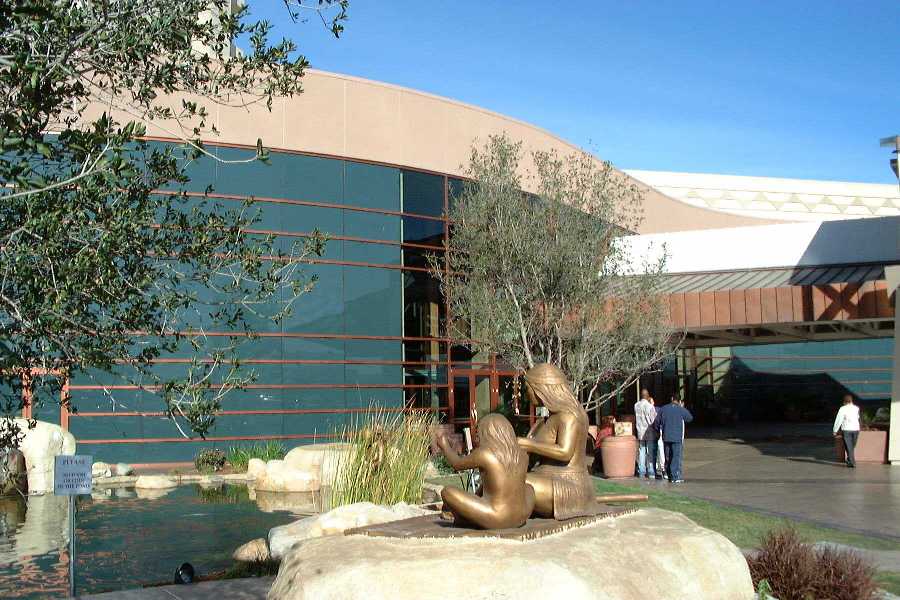
 Another Stereotype of the Month entry:
Another Stereotype of the Month entry:

 Another Stereotype of the Month entry:
Another Stereotype of the Month entry:
Chairman of Indian gaming group calls UNLV professor 'villainous liar'
By TONY BATT STEPHENS
WASHINGTON BUREAU
WASHINGTON — The chairman of a lobbying group for Indian casinos on Tuesday called a UNLV professor a liar and accused two congressmen of trying to steal the sovereignty of gambling tribes.
Ernie Stevens Jr., chairman of the National Indian Gaming Association, made the comments to the National Congress of American Indians.
"Professor Bill Thompson, from the University of Nevada, Las Vegas — this guy is looked upon as an expert on Indian gaming," Stevens said. "This guy is one of the most villainous liars about Indian gaming you'll ever know."
Stevens did not explain why he believes Thompson is a liar, but said tribes must fight against a public relations effort to smear tribal gambling.
Thompson said Stevens' comments were "totally absurd."
"I find it a little disconcerting that these kinds of words are used against anybody who opposes the expansion of Indian gaming as a public policy issue," Thompson said. "I oppose it because it is not helping most Native Americans. ... If the money were pooled, and given to all Native Americans, I would get up and cheer."
Before his comments on Thompson, Stevens lashed out at Reps. Chris Shays, R-Conn., and Frank Wolf, R-Va., who are co-sponsoring legislation that would establish a federal commission to study the economic and social effect of Indian gambling.
"These guys are lost; these guys are trying to steal our sovereignty," Stevens said.
Calls to Shays and Wolf were not returned.
Stevens urged the National Congress of American Indians, which lobbies Congress for Native American and Alaska native governments and individuals, to defend the regulation of Indian gambling.
"We know that Frank Wolf is full of it," Stevens said. "They try to say that there's some kind of corruption in Indian gaming? They try to say that we need help to secure our facilities? We've got the best in this whole country."
Rob's comment
Bill Thompson, supposedly an expert on Indian gaming, says the following:
I oppose it because it is not helping most Native Americans. ... If the money were pooled, and given to all Native Americans, I would get up and cheer.
This is about as ignorant a statement as one can make about Indian gaming. It's straight from the Time magazine school of ignorance.
Repeat after me: Congress never intended Indian gaming to help all Indians. It intended Indian gaming to help those who wanted to take advantage of it. Period.
Indian gaming is similar to thousands of government-mandated programs—for instance, block grants for community development. Shockingly, some communities remain poor after the instigation of this (kind of) program. Why? Because it's voluntary. Not all communities apply for these grants. Those that do don't always reap the potential benefits. Economic, political, and sociocultural barriers may hinder the successful implementation of such grants.
A child could understand this point, although Bill Thompson, Time magazine, and other gaming critics seem to have missed it. In Thompson's case, it should disqualify him from having opinions on the subject. He may not be a "villainous liar," but if he isn't misstating the premise of Indian gaming intentionally, he's a sorry fool.
See Wolf: Widespread Crime Allegations Cast Cloud Over Gaming for more on how Indian gaming works.
|
. . . |

|
All material © copyright its original owners, except where noted.
Original text and pictures © copyright 2007 by Robert Schmidt.
Copyrighted material is posted under the Fair Use provision of the Copyright Act,
which allows copying for nonprofit educational uses including criticism and commentary.
Comments sent to the publisher become the property of Blue Corn Comics
and may be used in other postings without permission.